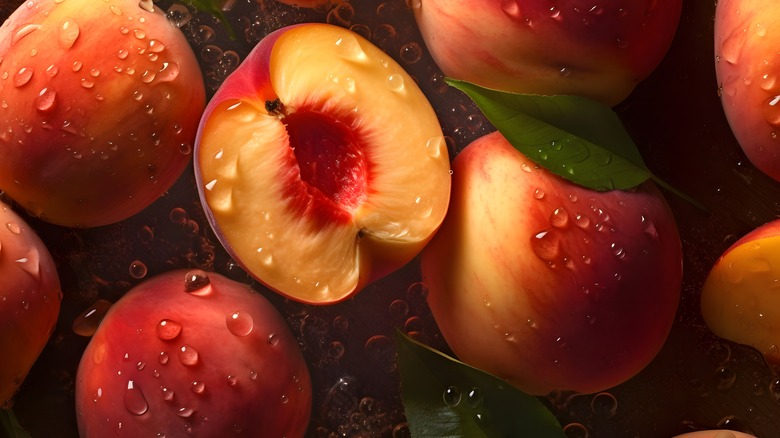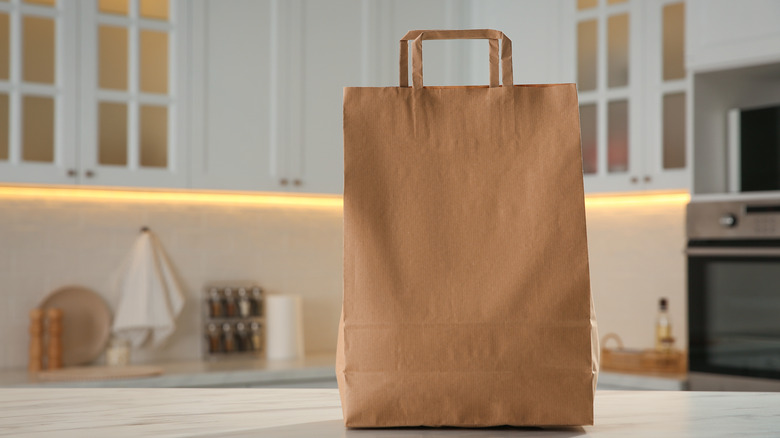The Fastest Hack To Ripen Fresh Peaches
Summer not only brings longer days and cozy thunderstorms, but also the promise of fresh, ripe peaches. Between May and mid-July — depending on where you live — golden-pink peaches begin to weigh down the branches of their trees, waiting to pop up in the grocery store to become cobbler, crumble, or crisp topped with vanilla ice cream. However, not every peach you purchase will be at peak ripeness right away. In fact, some growers harvest them early to help ensure freshness during transport.
If all your grocery store has to offer are hard, underripe peaches, don't worry. You can help your peaches ripen faster with a simple, low-tech tool — the humble paper bag. Simply set your peaches stem-side down inside the bag and roll the top down to seal it slightly. After a day or two, check them for ripeness. If they're slightly soft and very fragrant, they're ready to enjoy!
Even if you plan to store your peaches for later, you should ripen them first to develop their flavor. Canning and freezing are among the best ways to store peaches long-term, as they keep the peaches fresh and lock in their flavor, which is why ripening is crucial. If they taste their best before storing them, they'll taste just as good when you pull them out for a little taste of summer during the colder months.
When it comes to ripening peaches, the magic is in the bag
Peaches are climacteric fruits, meaning they continue to ripen after being picked. Plums, apricots, and mangoes also fall into this category, while non-climacteric fruits like apples, grapes, and watermelons stop ripening at the moment they're harvested. This is because climacteric fruits produce ethylene gas, and non-climacteric fruits don't.
Ethylene gas is actually a hormone that climacteric fruits secrete as vapor as they grow and become ripe. If left on the tree, ethylene gas would help the fruit convert starches to sugars and grow heavier until it drops to the ground. The fruit would then begin to decompose to feed the seeds inside it to help grow a new fruit tree. This is why climacteric fruits destined for transportation and sale are often harvested early, to help them remain fresher and sell better. If you're having trouble finding ripe peaches at the grocery store, early harvesting may be the culprit.
While underripe peaches will eventually become soft and juicy on their own, placing them in a paper bag speeds this process by trapping the ethylene gas. The gas swirls around the fruit instead of escaping, making them ready to eat sooner. Though plastic bags also help peaches ripen faster, they trap both ethylene gas and moisture, which may produce mold. Paper bags allow moisture to evaporate, making them the better choice.

